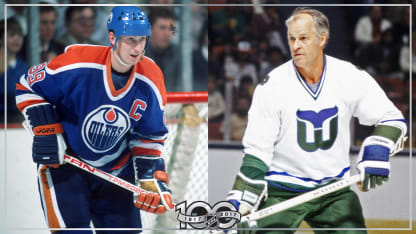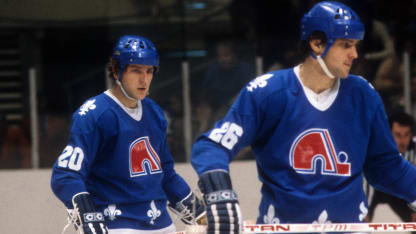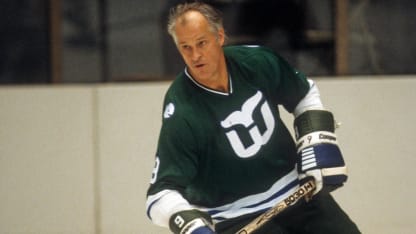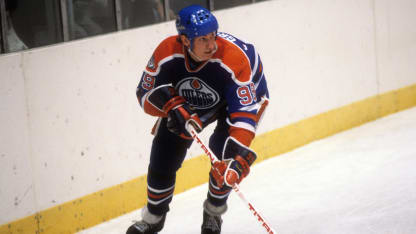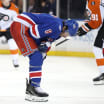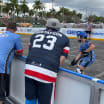The WHA teams came into the NHL with their old names (although New England was rechristened as the Hartford Whalers) and none had to pay a territorial indemnity (as the New York Islanders did to the New York Rangers in 1972). But they didn't arrive whole: The newcomers were allowed to protect two skaters and two goaltenders, with the remaining players made available to the 17 existing NHL teams, who were also allowed to claim any WHA players whose rights they held.
The agreement included an expansion draft to stock the newcomers; each of the 17 existing teams were allowed to protect 15 skaters and two goaltenders. The 21 teams were aligned in four divisions for 1979-80, with 16 teams advancing to the Stanley Cup Playoffs. The newcomers were put at the bottom of the each round in the 1979 NHL Draft, although that didn't stop teams like the Nordiques (Michel Goulet) and Oilers (Kevin Lowe) from finding top-end talent at the bottom of the first round.
The expansion brought two hockey icons back to the NHL for a curtain call.
Gordie Howe, who had retired in 1971 after 25 seasons with the Detroit Red Wings but returned to the ice two years later to play with his sons in the WHA, was a member of the Whalers (as were sons Mark Howe and Marty Howe). Bobby Hull, a five-time 50-goal scorer with the Chicago Blackhawks before signing with the Jets in 1972, played 18 games for Winnipeg and nine for Hartford after being traded. Each retired after the 1979-80 season.
